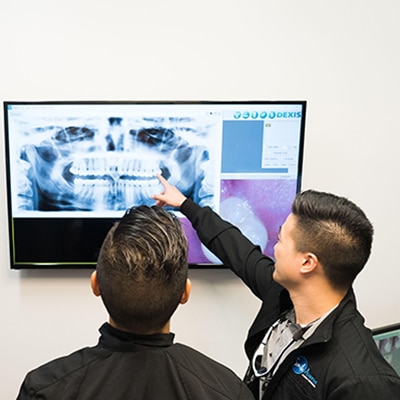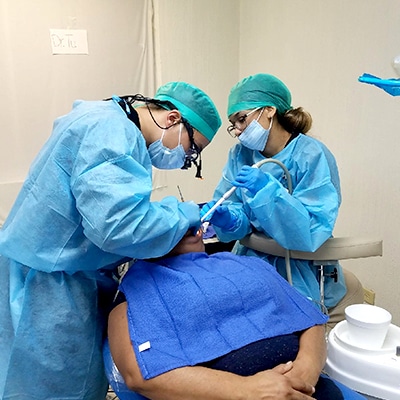
Oil pulling (oil swishing) offers potential benefits for oral health by reducing bacteria levels in the mouth, enhancing gum health, and preventing issues such as bad breath and cavities. This ancient practice involves swishing oil in the mouth to eliminate bacteria and support oral hygiene, often associated with Ayurveda, the traditional medicine system of India. Research indicates that oil pulling can effectively eliminate oral bacteria and improve dental health. Additionally, some proponents of alternative medicine suggest it may assist in treating certain ailments.
While the exact mechanism of oil pulling remains unclear, it is believed to remove bacteria by a “pulling” action. Furthermore, it may contribute to gum moisturization and increased saliva production, both of which can aid in bacteria reduction. Certain types of oil possess properties that naturally combat inflammation and bacteria, further promoting oral health.
Nevertheless, the scientific evidence on oil pulling is limited, leading to ongoing debates regarding its true efficacy. This blog will explore the scientifically supported benefits of oil pulling and provide guidance on how to perform it effectively for optimal results.
1. Help Reduces Harmful Bacteria in Your Mouth
The human mouth can harbor approximately 700 different types of bacteria, with up to 350 varieties present at any given time. Among these, certain harmful bacteria can contribute to dental issues such as tooth decay, halitosis, and gum disease.
Numerous studies have demonstrated the potential of oil swishing to diminish the presence of harmful bacteria in the oral cavity. For instance, a study involving 75 adolescents compared the effects of daily use of an antibacterial mouthwash to oil pulling using sesame oil. After a 15-day period, both methods significantly decreased the levels of harmful bacteria detected in both saliva and plaque.
Similarly, another study enlisted 60 participants who rinsed their mouths with either mouthwash, water, or coconut oil over a 2-week period. The findings revealed that both mouthwash and coconut oil were effective in reducing bacterial counts in saliva.
The reduction of oral bacteria through practices like oil swishing can contribute to maintaining proper oral hygiene and mitigating certain oral health conditions.
2. Help Reduce Bad Breath
Halitosis, commonly known as bad breath, affects approximately 50% of the population.
Numerous factors can contribute to bad breath, including infections, gum disease, inadequate oral hygiene, and the accumulation of bacteria on the tongue.
Treatment typically involves the elimination of bacteria, achieved through brushing or the use of antiseptic mouthwashes such as chlorhexidine.
An intriguing study conducted in 2011 discovered that oil pulling exhibited comparable efficacy to chlorhexidine in reducing bad breath. In this study involving 20 children, rinsing with either chlorhexidine or sesame oil resulted in a significant decrease in the levels of microorganisms associated with bad breath.
While further research is necessary, oil swishing may serve as a natural alternative for combating bad breath, potentially offering effectiveness equivalent to conventional treatments.
3. Help Prevent Cavities
Cavities, which result from tooth decay, are a prevalent dental issue.
Contributing factors to tooth decay include inadequate oral hygiene practices, excessive sugar consumption, and bacterial buildup. These factors culminate in the development of cavities, characterized by the formation of holes in the teeth.
Plaque, a sticky film comprising bacteria, saliva, and food debris, plays a significant role in cavity formation. Bacterial action within plaque leads to the production of acids that erode tooth enamel, initiating the decay process.
Several studies have demonstrated the potential of oil swishing to reduce oral bacteria levels, thus aiding in the prevention of tooth decay. Indeed, research suggests that oil swishing may be as effective as mouthwash in decreasing the presence of harmful bacteria in both saliva and plaque.
By diminishing the population of these detrimental bacteria through oil pulling, individuals may mitigate the risk of tooth decay and subsequent cavity formation.
If you require treatment for cavities or tooth decay, we recommend visiting our dental office in Cinco Ranch, Katy.
4. Seems to Reduce Inflammation and Improve Gum Health
Gingivitis, characterized by inflamed, bleeding gums, is a common form of gum disease primarily caused by bacteria present in plaque.
Fortunately, oil pulling presents a promising remedy for enhancing gum health and alleviating inflammation. Its efficacy lies in its ability to reduce harmful oral bacteria and plaque accumulation, notably Streptococcus mutans, implicated in gum disease.
Utilizing oils with anti-inflammatory properties, such as coconut oil, further aids in mitigating gum inflammation associated with the condition.
In a study involving 60 participants with gingivitis, oil pulling with coconut oil for 30 days resulted in reduced plaque levels and improved gum health within one week.
Similarly, an earlier study examining 20 boys with gingivitis compared the effectiveness of oil pulling with sesame oil to that of a conventional mouthwash. Both groups exhibited decreased plaque accumulation, improved gingival health, and reduced oral bacteria.
Although additional research is warranted, these findings suggest that oil pulling may serve as a beneficial adjunctive therapy in preventing plaque formation and fostering gum health.
5. Other benefits
Despite claims from proponents suggesting a wide range of potential benefits beyond those previously discussed, scientific research on the efficacy of oil pulling remains limited.
However, the anti-inflammatory properties associated with oil pulling may hold promise in addressing certain conditions associated with inflammation. While specific studies evaluating the effectiveness of oil pulling for these conditions are lacking, its potential to alleviate inflammation warrants consideration.
Additionally, anecdotal reports suggest that oil pulling may serve as a natural method for teeth whitening. Some individuals assert that it can extract surface stains from teeth, resulting in a whitening effect. Nevertheless, there is currently no scientific evidence to substantiate these claims.
6. Easy to Add to Your Routine and Cheap
Two significant advantages of oil pulling are its simplicity and seamless integration into daily routines.
Moreover, it requires only one readily available ingredient, typically found in kitchen pantries, eliminating the need for additional purchases.
Traditionally, sesame oil has been the preferred choice for oil pulling, although various other oils can serve the same purpose. Coconut oil, renowned for its potent anti-inflammatory and antibacterial properties, stands out as an excellent option for oil pulling. Likewise, olive oil, recognized for its inflammation-reducing qualities, is also commonly used.
To initiate oil pulling, allocate just 20 minutes each day, utilizing this time to multitask while enhancing oral hygiene practices.
How to do Oil Pulling in 4 Simple Steps
Oil pulling is a straightforward process that involves a few uncomplicated steps:
- Measure one tablespoon (15 milliliters) of oil, such as coconut, sesame, or olive oil.
- Swish the oil around in your mouth for 15–20 minutes, ensuring not to swallow any.
- Dispose of the oil by spitting it into a trash can. It’s essential to avoid spitting it into the sink or toilet to prevent potential oil buildup, which may lead to clogging.
- Rinse your mouth thoroughly with water before consuming any food or beverages.
For optimal results, it is commonly advised to repeat these steps several times per week or up to three times daily. Additionally, you may consider starting with a shorter swishing duration, gradually increasing it until reaching the recommended 15–20 minutes.
Dr. Patrick Vuong, DMD, a reputable dentist in Cinco Ranch, Katy, recommends initiating oil pulling first thing in the morning on an empty stomach for optimal effectiveness. However, individuals can adjust the timing according to their personal preferences.
Several studies suggest that oil pulling holds promise in diminishing harmful oral bacteria, preventing plaque buildup, and improving gum health and overall oral hygiene.
However, it’s crucial to acknowledge that the current research in this area is somewhat limited.
Furthermore, it’s imperative to understand that oil pulling should not replace traditional oral hygiene practices, such as regular brushing, flossing, attending routine dental check-ups, and seeking professional guidance from a dentist regarding any oral health concerns.
Nevertheless, when used in conjunction with standard oral hygiene routines, oil pulling may offer a safe and beneficial natural method for enhancing oral health.









